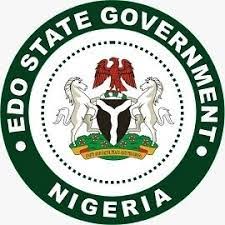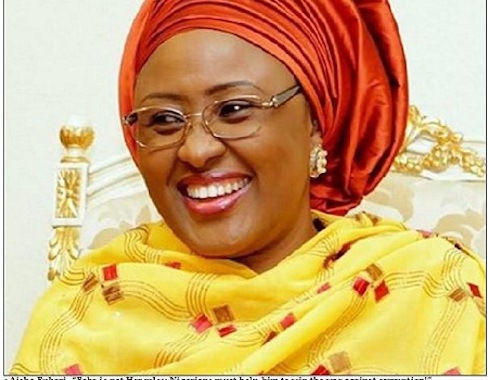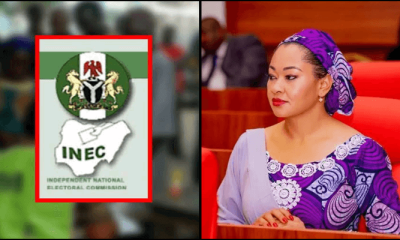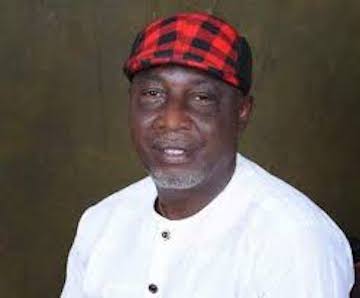Business News
CIBN Backs Tinubu on Exchange Rate Unification
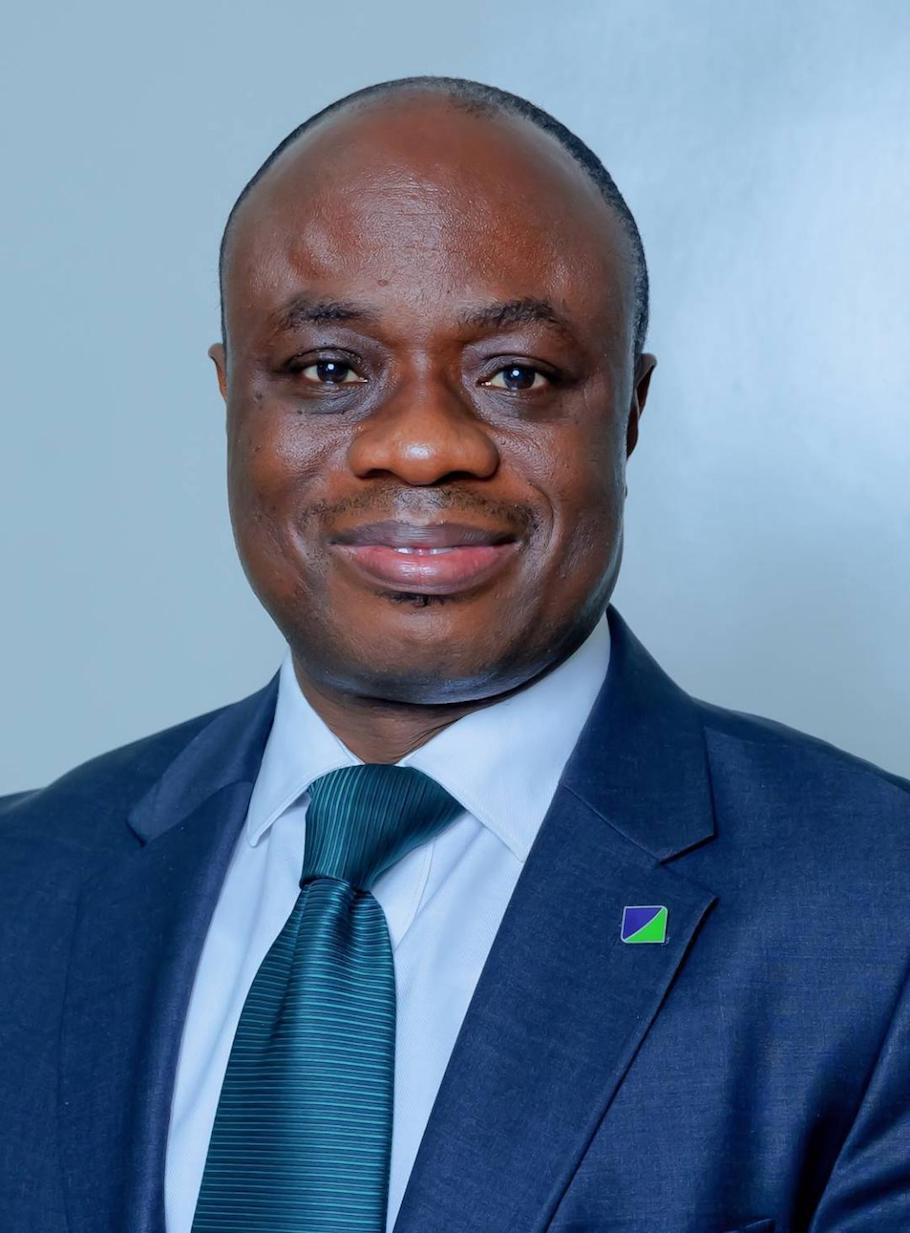
The Chartered Institute of Bankers of Nigeria (CIBN) has commended President Bola Tinubu for unifying the Naira exchange rate to save the country from financial crisis.
President and Chairman of Council of CIBN, Dr Ken Opara, said this at the 2023 Lagos Bankers Night with the theme, ” Exchange Rate Unification: Global Implications, Organisation’s and the Country “, on Friday night in Lagos.
According to him, the institute has always advocated transparency and a free market that would allow the interplay of supply and demand.
“The Chartered Institute of Bankers of Nigeria totally supports the Central Bank of Nigeria’s reform as it relates to the unification of the exchange rate and other measures basically taken to ensure the true value of the Naira.
“As a matter of fact, we have been advocating for this and during the week, Dr ‘Biodun Adedipe, leading other scholars, and Mr Laoye Jaiyeola of the Nigeria Economic Summit Group, gathered at the Bankers House to applaud the reform, especially as it relates to the unification of the exchange rate.
“We have seen that the effort that the Central Bank of Nigeria has initiated is already yielding dividend.
“We can see that the exchange rate between the Naira and the dollar has started coming down, which means it is a good initiative that is well thought out” he said,
Opara said that the institute recently organised a half year economic review, where captains of industry also spoke in support of the reform.
He urged Nigerians to take advantage of the good opportunities that the reform had presented, saying wherever there are challenges lie in opportunities.
The CIBN president pledged the institute’s continued commitment to making contributions and suggestions relating to what should be done to support and grow the country.
“As it is the concept of the industry; we played this role very well when the industry was facing challenges and we will continue to do that because we believe that the banking industry is very solid, stable and efficient” he stressed.
He described the payment system in Nigeria as “the best” all over the world, stressing that it is a system that one could consummate transactions on an online real-time basis.
Opara said this showed that the banking industry and its regulator had done well in stabilising what is an effective payment system.
He debunked media reports that its Lagos branch was not in support of the exchange rate unification, describing as “untrue”.
Chief Consultant of B. Adedipe Associates Ltd. (BAA Consult), Dr ‘Biodun Adedipe, said that the exchange rate unification, which was not new in Nigeria, had gone through the route before with different appellations.
“Let me trade very quickly what I brand as Nigeria’s journey to exchange rate unification.
“Nigeria has gone through this route before but with different appellations like devaluation, correction, alignment, depreciation, all of which are matter of semantics.
“The simple interpretation of this is to remove the premium on the official rate and the parallel market or road side market.
“Of course, this is a typical Bretton Woods recipe; keep premium within five per cent to decentivise round tripping and then find liquidity to sustain it.
“This is the easy way out; but, it never brings enduring solution to the persistent crisis in the external sector of the Nigerian economy” he explained.
According to him, there were 54 evidence-based research documents to establish that free float is not always the most appropriate for all economics.
Giving historical illustrations, the expert noted that exchange rate movements had a more significant impact on all other prices more than interest rates adjustment.
He said the only period that Nigeria experienced a successful and stable rate convergence in the country was when it had a significant external reserve.
Adedipe said it took the country an average of two to six weeks for the parallel market rates to diverge from the official exchange rate during each episode of premium removal.
He added that speculative attack on the currency occured each time there was no clear sight to a stable and enduring supply.
NAN recalls that President Bola Tinubu, had during his inauguration on May 29, said his administration would seek to bring the different exchange rate regimes being operated across the country’s foreign exchange channels under a single regime.
However, in June, Tinubu through the Special Adviser on Special Duties, Communications, and Strategy, Dele Alake, announced the implementation of a unified exchange rate to save the country from a financial crisis.
He emphasised that his decision to implement a managed float, similar to his approach to fuel subsidy removal, was in the best interest of Nigeria.(NAN)
Business News
Tinubu Congratulates Dangote on World Bank Appointment

By Jennifer Enuma, Abuja
President Bola Tinubu has congratulated Alhaji Aliko Dangote, the President of Dangote Group, on his appointment to the World Bank’s Private Sector Investment Lab, a body tasked with promoting investment and job creation in emerging economies.
In a statement by Special Adviser on Media and Publicity, Bayo Onanauga, the President described the appointment as apt, given Dangote’s rich private sector experience, strategic investments, and many employment opportunities created through his Dangote Group.
The Dangote Group became one of Africa’s leading conglomerates through innovation and continuous investment.
Dangote Group’s business interests span cement, fertiliser, salt, sugar, oil, and gas. However, the $20 billion Dangote Petroleum Refinery and Petrochemicals remains Africa’s most daring project and most significant single private investment.
“President Tinubu urges Dangote to bring to bear on the World Bank appointment his transformative ideas and initiatives to impact the emerging markets across the world fully” the statement said.

The World Bank announced Dangote’s appointment on Wednesday, as part of a broader expansion of its Private Sector Investment Lab. The lab now enters a new phase aimed at scaling up solutions to attract private capital and create jobs in the developing world.
The CEO of Bayer AG, Bill Anderson, the Chair of Bharti Enterprises, Sunil Bharti Mittal, and the President and CEO of Hyatt Hotels Corporation, Mark Hoplamazian, are on the Private Sector Investment Lab with Dangote.
The World Bank said the expanded membership brings together business leaders with proven track records in generating employment in developing economies, supporting the Bank’s focus on job creation as a central pillar of global development.
Business Analysis
Nigeria Customs Generates over N1.75trn Revenue in 2025
By Joel Oladele, Abuja
The Nigeria Customs Service (NSC) has generated an impressive N1,751,502,252,298.05 in revenue during the first quarter of 2025.
The Comptroller-General (CG) of the Service, Bashir Adeniyi, disclosed this yesterday, during a press briefing in Abuja.
According to Adeniyi, the achievement not only surpasses the quarterly target but also marks a substantial increase compared to the same period last year, reflecting the effectiveness of recent reforms and the dedication of customs officers across the nation.
“This first quarter of 2025 has seen our officers working tirelessly at borders and ports across the nation.
I’m proud to report we’ve made real progress on multiple fronts—from increasing revenue collections to intercepting dangerous shipments,” Adeniyi stated.He attributed this success to the reforms initiated under President Bola Tinubu’s administration and the guidance of the Honourable Minister of Finance and Coordinating Minister of the Economy, Olawale Edun.
The CG noted that the revenue collection for Q1 2025 exceeded the quarterly benchmark of N1,645,000,000,000.00 by N106.5 billion, achieving 106.47% of the target. This performance represents a remarkable 29.96% increase compared to the N1,347,705,251,658.31 collected in Q1 2024.
Adeniyi highlighted the month-by-month growth, noting that January’s collection of N647,880,245,243.67 surpassed its target by 18.12%, while February and March also showed positive trends.
“I’m pleased to report the Service’s revenue collection for Q1 2025 totaled N1,751,502,252,298.05.
“Against our annual target of N6,580,000,000,000.00, the first quarter’s proportional benchmark stood at N1,645,000,000,000.00. I’m proud to announce we’ve exceeded this target by N106.5 billion, achieving 106.47% of our quarterly projection. This outstanding performance represents a substantial 29.96% increase compared to the same period in 2024, where we collected N1,347,705,251,658.31.
“Our month-by-month analysis reveals even more encouraging details of this growth trajectory,” Adeniyi said.
In addition to revenue collection, Adeniyi said the NCS maintained robust anti-smuggling operations, recording 298 seizures with a total Duty Paid Value (DPV) of ₦7,698,557,347.67.
He stated that rice was the most seized commodity, with 135,474 bags intercepted, followed by petroleum products and narcotics.
“From rice to wildlife, these seizures show our targeted approach,” Adeniyi remarked, noting the NCS’s commitment to combating smuggling and protecting national revenue.
Adeniyi also highlighted key initiatives, including the expansion of the B’Odogwu customs clearance platform and the launch of the Authorized Economic Operators Programme, which aims to streamline processes for compliant businesses. The NCS’s Corporate Social Responsibility Programme, “Customs Cares,” was also launched, focusing on education, health, and environmental sustainability.
Despite these achievements, the CG noted that the NCS faced challenges, including exchange rate volatility and non-compliance issues. Adeniyi acknowledged the need for ongoing adaptation and collaboration with stakeholders to address these challenges effectively.
Looking ahead, the NCS aims to continue its modernization efforts and enhance service delivery, ensuring that it remains a critical institution in Nigeria’s economic and security landscape.
“Results speak louder than plans; faster clearances through B’Odogwu, trusted traders in the AEO program, and measurable food price relief from our exemptions. We’ll keep scaling what works,” he concluded.
BUSINESS
NSIA Net Assets Hit N4.35trn in 2024
By Tony Obiechina Abuja
The Nigeria Sovereign Investment Authority (NSIA) yesterday disclosed that its net assets grew from N156bn in 2013 to N4.35 trillion in 2024.
Similarly, the Authority has remained profitable for 12 consecutive years, leading to cumulative retained earnings of N3.
74 trillion in 2024.Managing Director and Chief Executive Officer of NSIA, Aminu Umar- Sadiq made these disclosures at a media engagement in Abuja, highlighting its audited financial results for the 2024 fiscal year.
According to him, the results underscored the resilience of the authority’s investment strategy and the strength of its earnings, driven by a well-diversified revenue base and robust risk management practices, despite a challenging global macroeconomic and geopolitical environment.
Total operating profits, excluding share of profits from associates and Joint Venture (JV) entities, increased from N1.17 trillion in 2023 to N1.86 trillion in 2024, driven by the strong performance of
NSIA’s diversified investment portfolio, infrastructure assets, gains from foreign exchange movements, and derivative valuations.
In addition, Total Comprehensive Income (TCI), inclusive of share of profits from associates and JV entities, reached N1.89 trillion in 2024, reflecting a 59 per cent increase from N1.18 trillion in 2023.
Core TCI (excluding foreign exchange and derivative valuation gains) rose by 148 per cent to N407.9 billion in 2024 compared to N164.7 billion in 2023, supported by robust returns on financial assets measured at fair value through profit and loss, including collateralised securities, private equity, hedge funds, and Exchange-Traded Funds (ETFs).
Umar-Sadiq said the authority’s outstanding financial performance in 2024 reflected the “strength of our strategic vision, disciplined execution and unwavering commitment to sustainable socio-economic advancement.”
He said, “By leveraging innovation, strategic partnerships and sound risk management, we have not only delivered strong returns but also created value for our stakeholders
“As we move forward, we remain focused on driving economic transformation, expanding opportunities, scaling transformative impact and ensuring long-term prosperity for current and future generations of Nigerians.”
The CEO reaffirmed the authority’s commitment to managing the country’s SWF, and delivering the mandates enshrined in the NSIA Act.
He said NSIA remained poised to continually create long-term value for its stakeholders by delivering excellent risk-adjusted financial results, developing a healthy and well-diversified portfolio of assets and large-scale infrastructure projects, and enhancing the desired social outcomes.
He noted that NSIA was committed to its mandate of prudent management and investment of Nigeria’s sovereign wealth.
“In adherence to its Establishment Act, NSIA prioritises transparency, disclosure, and effective communication with all stakeholders and counterparties,” he said.
He pointed out that in the year under review, a new board, led by Olusegun Ogunsanya as Chairman, was appointed by President Bola Tinubu, in accordance with the provisions of the NSIA Act.
The new board will provide strategic direction and oversight, in addition to playing a pivotal role in critical decision making.
He remarked that under the guidance of the Board, the Authority will retain focus on its primary mandate of creating shared value for all stakeholders based on its continued adoption of corporate governance practices.
“NSIA prides itself an investment institution of the federation established to manage funds in excess of budgeted oil revenues and its mission is to play a pivotal role in driving sustained economic development for the benefit of all Nigerians through building a savings base for the Nigerian people, enhancing the development of the county’s infrastructure, and providing stabilisation support in times of economic misadventure,” he added.






